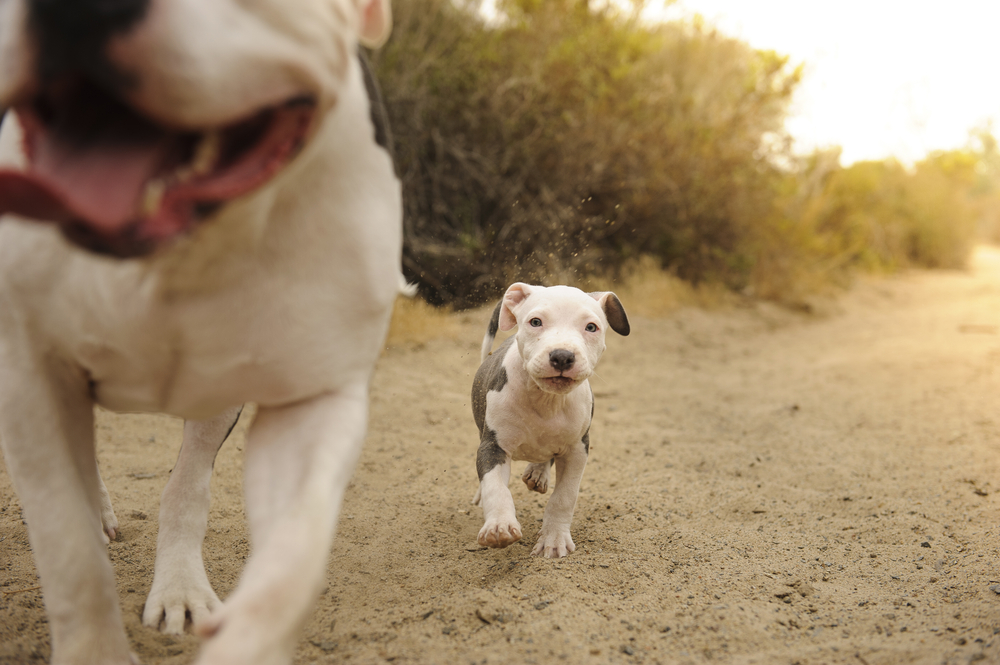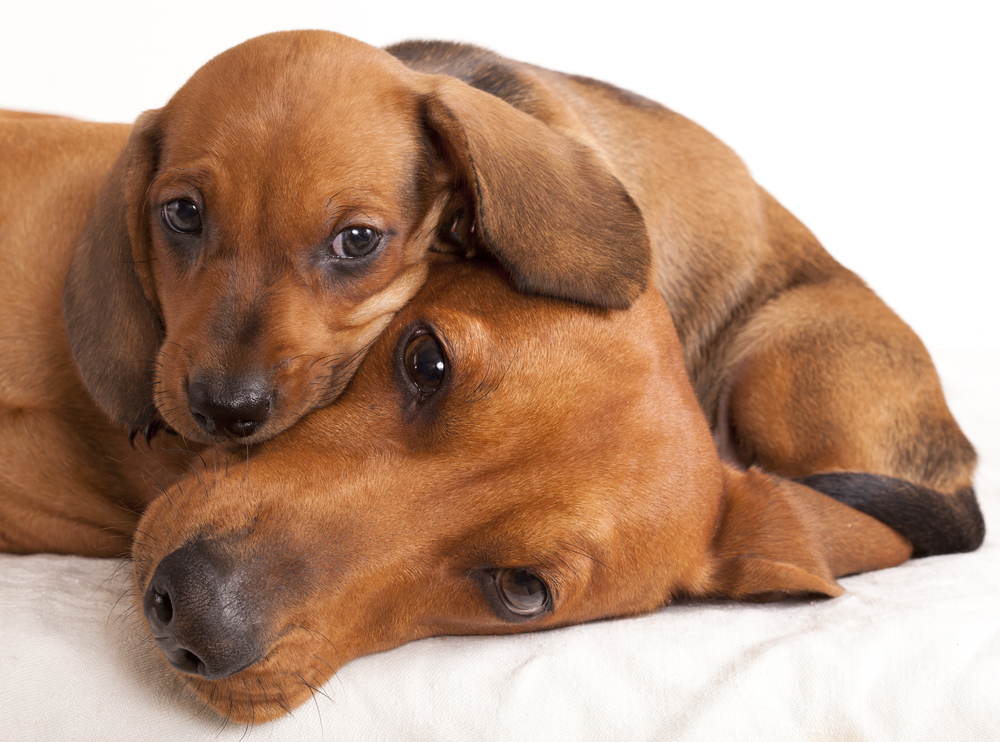It is not exactly clear whether a male dog knows who his puppies are, so this question is difficult to answer with certainty. However, Based on what we know, male dogs generally do not recognize their own puppies. They lack parental instincts and will not participate in caring for or raising the puppies.
Because of this, there is a high chance that the owner does not know who their puppy is. Although they know who their pup is, sometimes they don’t express their parental instincts.
Let’s take a closer look at why your male dog (probably) doesn’t know about the puppies.
Why don’t male dogs know about puppies?
Again, this type of behavior is very difficult to study, but there are a few possibilities that could explain why male dogs may lack this instinct.
- evolution: Contrary to what some dog food ads claim, dogs are not wolves. Dogs have been domesticated for thousands of years. During that time, they have evolved side-by-side with humans and have become quite different from their wolf ancestors. For example, humans have taken over the responsibility of providing food and shelter, while dogs often take on more niche roles. As such, male dogs do not need to contribute to the success of the puppies, and multiple humans usually do.
- Limited interaction: In modern society, male dogs are rarely around their mothers during or for a few weeks after birth. This weakening of the bond between mother and pup may contribute to a lack of parental instinct later on. However, male dogs can also show signs of jealousy and accidentally hurt the puppies. So there is good reason why most breeders do not allow male dogs around for a few weeks after birth.
However, none of these reasons mean that male dogs won’t be affectionate towards puppies. Often times, male dogs may be playful with puppies, but this doesn’t necessarily mean that they recognize the puppies as their own. Puppies. A well-socialized dog is more likely to demonstrate good social skills around puppies.
Many male dogs get along very well with puppies and can help socialize the puppy from an early age, but to ensure safety, it’s important to supervise any interactions between your male dog and any new puppies, or accidents may occur.

Does the male dog know that puppies have been born?
Many modern breeders isolate pregnant female dogs from other dogs during and for several weeks after birth, as this is a very sensitive time for both the female and the puppies, and the presence of other dogs does more harm than good.
Additionally, unlike humans who understand the stages of pregnancy, dogs rely solely on instinct and physical cues. A male dog won’t know that a female dog is giving birth unless he’s in her presence. And even if the male is with the female, there’s a good chance he won’t understand what’s going on.
(As with many humans, female distress can scare off males.)
It’s common for female dogs to exhibit behavioral changes before giving birth, but it’s unclear if male dogs notice them. Pheromones may also be present, but there’s no research to suggest that males respond in any special way to these hormones.
Of course, there are some obvious cues that a male can give that let him know that puppies are there – for example, hearing or seeing puppies will make it obvious to him that puppies are there.
Do male dogs get attached to puppies?
Male dogs generally do not become attached to puppies in the same way that humans do. They do not have a strong parental instinct and will not take an active role in caring for or protecting the puppies. However, this does not mean that they cannot develop a bond with a puppy just like any other dog.
For example, many dogs love puppies. They may be particularly quiet around puppies, but that may be due to their instincts as older dogs. However, this does not mean that male dogs are particularly attached to puppies. Some male dogs, especially when they are older and more energetic, may try to play with puppies.
Some male dogs don’t get along well with puppies – the puppies can be overly energetic and “annoying” or they can get jealous of all the attention the puppies get.
In any case, even if the interaction seems to be going well, it’s important to monitor closely: puppies can easily be injured by a larger dog, and because puppies don’t have as many social skills, they may not be able to escape if the interaction goes awry.
Socialization and training are key if you want your male dog to get along well with the puppies. Don’t think that just because the puppy is genetically related to the dog, everything will be fine — it often doesn’t mean much when it comes to building a relationship.

How do male dogs react to puppies?
Male dogs react in different ways to puppies, and again, this depends a lot on the dog’s personality. Here’s a quick rundown of what could be going on:
- Curiosity and playfulness: This is a common reaction. Most of the time, dogs will play around the puppy and be curious – sniffing the puppy and trying to “get to know him”. If the puppy is playful and energetic, he will often get nutrients from the older dog, who will also become more energetic and playful. However, it is important to remember that puppies cannot tolerate rough play.
- Neutral: Some male dogs may not be particularly responsive, ignoring the puppy or walking away when the puppy tries to interact with them, so it’s important not to force interaction.
- envy: Sometimes male dogs dislike puppies. Male dogs can be possessive and some dogs don’t understand that puppies are just puppies. They may think that the puppies are trying to steal their things, like toys or food.
- anxiety: Many dogs become anxious around puppies. Puppies are unpredictable and very poorly socialized. Many dogs just don’t know what to do with them. Older dogs may quickly become overwhelmed with lots of puppies, especially if they weren’t adequately socialized with puppies when they were young. Watch for signs of anxiety and take your older dog in if he seems anxious.
Very young puppies tend to evoke a nurturing response in other dogs, including males, who often know how to be gentle with them, but as puppies grow older and become more active, play becomes the primary form of interaction.

lastly
There is no evidence that male dogs know if a puppy is genetically related to them, so they just see the puppy as a puppy and not necessarily as a parent. Their puppy.
How male dogs behave with puppies varies by breed and situation. They may be gentle and caring towards puppies. They may play nicely with older puppies. They may also be anxious, anxious or fearful of competition for resources. Socialization can help older dogs get along with puppies, but there is still a lot of individual variation.
Featured Image Credit: WilleeCole Photography, Shutterstock




